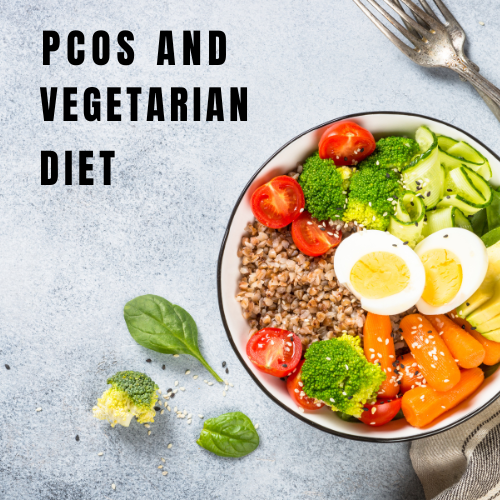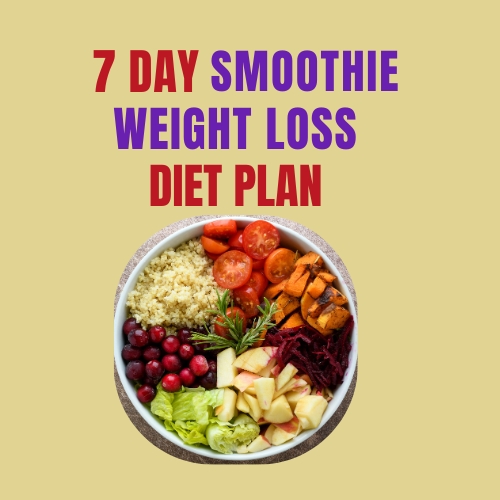PCOS and Vegetarian Diet: A Balanced Approach to Better Health
Polycystic Ovary Syndrome (PCOS) is a hormonal disorder in many women of reproductive age. The most successful means of managing PCOS is through dietary change, specifically changes in diet. In those living a vegetarian lifestyle, the relationship between PCOS and vegetarian diet selection is particularly significant. Knowledge about the ways that nutrition affects the balance of hormone levels, weight, and insulin sensitivity can enable women with PCOS to make informed food choices.
Understanding PCOS and Its Effects
PCOS entails hormonal imbalance, resistance to insulin, abnormal periods, and unexplained weight gain. Women can also have acne, hair loss, or excess hair. The underlying cause is frequently connected with the body creating an excessive amount of insulin, which causes higher androgen production. This hormonal imbalance will then affect the ovaries from functioning properly.
As diet is an important factor in controlling insulin levels and inflammation, the interconnection between PCOS and vegetarian diet approaches is of interest.
Benefits of a Vegetarian Diet for PCOS
Improved Insulin Sensitivity
One of the primary advantages of a PCOS and vegetarian diet is its ability to increase insulin sensitivity. Vegetarian diets are inherently rich in fiber content, which decreases the rate at which sugar enters the body. This prevents insulin spikes, a big issue for PCOS women.
Whole grains, legumes, vegetables, and fruits can stabilize blood sugar levels. These foods form the core of a vegetarian diet and are well in line with PCOS dietary recommendations.
Hormone Regulation Through Plant Foods
Most plant foods are rich in phytoestrogens, the plant-based substances that act like estrogen in the body. Flaxseeds, soybeans, and lentils can manage hormonal imbalances. Moderate intake of non-GMO, organic soy foods such as tofu or edamame will not cause harm and may be helpful in balancing hormones.
Thus, implementing a plant-based lifestyle can provide hormonal benefits, supporting the PCOS and vegetarian diet cure link.
Nutritional Considerations
While a vegetarian diet may provide many advantages, careful planning of meals is essential to prevent deficiencies.
Protein Intake
Women with PCOS require sufficient protein to maintain muscle and support metabolic function. High-quality vegetarian protein sources are:
- Lentils and beans
- Chickpeas
- Quinoa
- Tofu and tempeh
- Nuts and seeds
Including a good protein source at each meal helps contribute to satiety and glucose regulation.
Iron and Vitamin B12
Vegetarian diets can be low in readily absorbed iron and vitamin B12, both of which are important for energy and hormonal well-being. Iron can be replaced with green, leafy vegetables, legumes, and fortified cereals, and B12 may need to be supplemented or obtained from fortified plant foods.
Building a Balanced PCOS-Friendly Vegetarian Diet
To work effectively to support PCOS, your vegetarian diet must emphasize whole, nutrient-dense foods. Here is a straightforward guide:
1. Include Fiber-Rich Carbohydrates
Opt for slow-digesting carbs like oats, brown rice, sweet potatoes, and legumes. These contain levels of carbohydrates to control insulin action and maintain energy levels.
2. Emphasize Healthy Fats
Fat is crucial in the production of hormones. Incorporate sources such as:
- Avocados
- Olive oil
- Chia seeds
- Walnuts
Healthy fats promote cardiovascular well-being and facilitate the absorption of fat-soluble vitamins.
3. Limit Processed Foods
Limit highly processed plant foods with sugar, salt, and unhealthy fats. Go for whole-food ingredients you can cook at home.
Lifestyle Tips to Support Your Diet
Adding a healthy veggie diet to other lifestyle modifications will tremendously improve PCOS management.
- Exercise regularly. Include a combination of cardio, strength training, and stretching to improve metabolism and lower insulin resistance.
- Manage stress. Stress can exacerbate hormonal imbalances over time. Incorporate stress-reducing routines such as yoga or meditation.
- Get quality sleep. Poor sleep can interfere with hormone balance. Shoot for 7–8 hours at night.
These practices, combined with a considered meal plan, can fortify the link between PCOS and vegetarian diet success.
Final Thoughts
PCOS management involves a whole-person strategy, and nutrition plays a central role. A well-designed vegetarian diet may help balance hormones, enhance insulin sensitivity, and lower inflammation. Selecting nutrient-dense, whole plant foods enables women to beneficially impact their PCOS symptoms while living a compassionate and sustainable lifestyle.
The relationship between PCOS and vegetarian diet patterns offers a promising path for those seeking natural and effective solutions. With the right planning, awareness, and support, it is possible to thrive and take control of your health one meal at a time.





